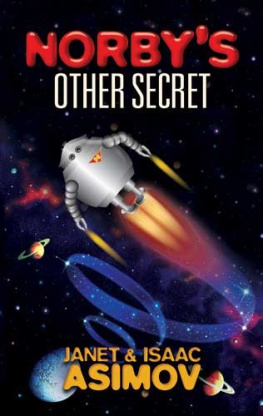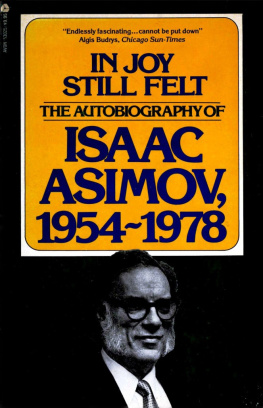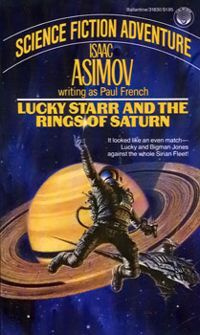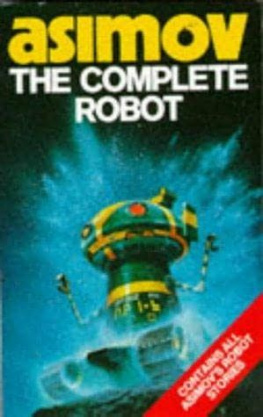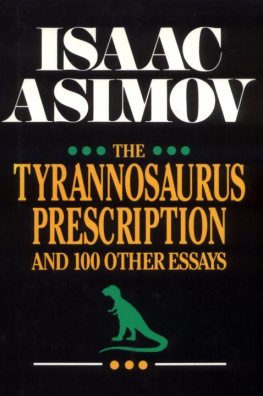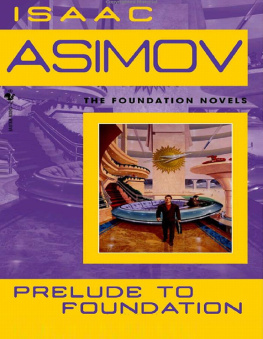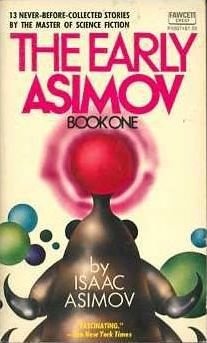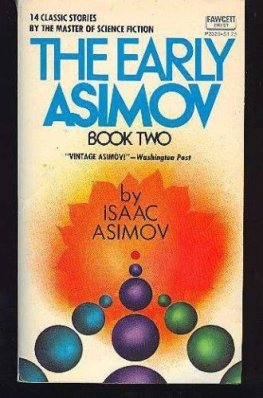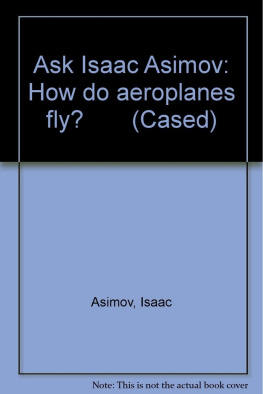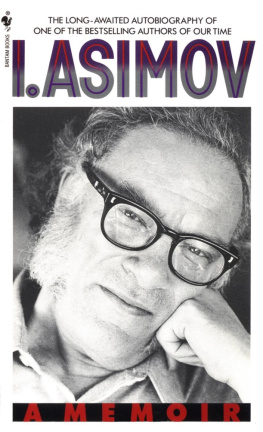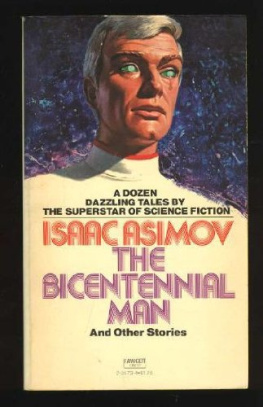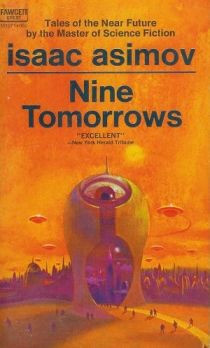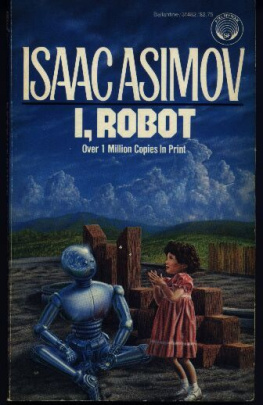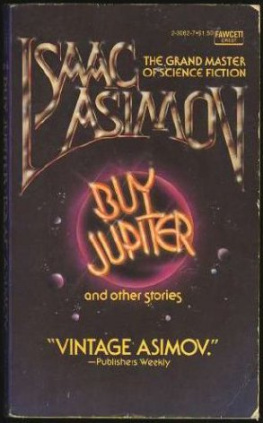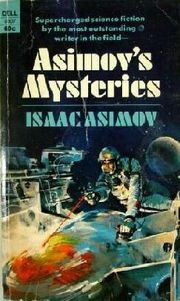Isaac Asimov, Janet Asimov
Norby's Other Secret
to the beautiful younger generation
Patti
Leslie
Nanette
Robyn
1. Danger
Jefferson Wells sat in front of the main computer screen, trying to keep his mind on Earth history.
"Hey, Norby," he called out, "I hope you're fixing the kitchen computer without making things worse. Albany Jones and my brother, Fargo, will be here soon and I don't want to leave the Roman republic again just because the chicken has to be basted."
No one answered.
"Norby?" Jeff made it to the kitchen in a fast stride-his legs were long for a fourteen-year-old-and found no one fixing the computer or attending to the cooking.
Jeff shook his head. He knew lots of people with personal robots, but he was the only one blessed with a mixed-up robot. He basted the chicken in a hurry, muttering to himself. Then he hastened back through the living room and into the bedroom.
There, in front of the other terminal of the main computer was Norby, his back eyes firmly shut. Jeff could tell from the dim reflection in the computer screen that Norby's second pair of eyes were open on the other side of his head. Those eyes were staring at words that moved down the screen almost rapidly enough to blur, for Norby could read faster than most people could think. This was especially true when he closed one pair of eyes in order to concentrate entirely with the other pair.
Norby's body-a metal barrel about sixty centimeters high-teetered back and forth on his fully extended legs, the feet of which were symmetrical fore and back. His multi-joined arms, just as fully extended, had hands that also faced both ways. One of those hands remained pressed dramatically to his barrel torso. The other flung itself away suddenly, in a gesture common among politicians and actors.
"Friends, Romans, countrymen," intoned Norby in a voice a little too deep to be natural to him, the words sounding through a hidden speaker in his unremovable domed hat. Norby always talked through his hat, which lifted only far enough to show his four remarkably human eyes. He proceeded to raise his outstretched arm and point at the computer terminal as if it were an audience.
"Lend me your ears, I come to bury Caesar, not to praise him"
"I'll bury you." Jeff said, "if you don't fix the kitchen computer in a hurry."
Norby opened his back eyelids and blinked at Jeff. "It's such a boring machine, Jeff. It doesn't know any Shakespeare."
"I think that means you haven't figured out how to repair it yet."
"And it doesn't like me. It thinks I'm alien."
"The kitchen computer has no feelings and practically no brains. There's no use bragging to it about how your first owner put alien parts in you."
"Oh," said Norby. "Then don't you think I should avoid associating with inferior machines? Don't you think I should improve the quality of my mental data bank by studying?"
Jeff groaned. "You could at least study real history. All you do is indulge yourself in Shakespeare or try to remember how to get to whatever alien planet your alien parts came from."
"Well, you won't find it. You humans haven't even settled beyond your own solar system, and you haven't developed telepathy"
"Great galaxy! What's the use of you being able to communicate with me telepathically if you're not going to use it to help me learn history quicker?" Jeff stomped back to the kitchen and set about mashing the potatoes, a job the kitchen computer was supposed to do.
Norby pattered after Jeff, his telescopic legs almost completely withdrawn so that he seemed very small and humble. "You don't seem grateful that I succeeded in helping you pass the Martian Swahili exam."
"Right now I need help with history," said Jeff, thumping the bowl so hard that a bit of unmashed potato flew up and hit him on the nose. Exasperated, Jeff rolled his eyes upward and saw that more potato was stuck on the ceiling. "For a supposed teaching robot, you probably haven't learned one bit of history yourself."
"I have too. I'll prove it to you."
Jeff never had a chance to ask Norby what he meant, because at that moment the door speaker buzzed to attract attention. Then it announced, "Cadet Wells-Admiral Yobo is here to see you."
"He's here, on Earth? To see-me? Let him in!"
Jeff dashed into the living room, forgetting the large plastic apron he had tied around his waist. Norby, retracting his legs all the way inside his barrel, made use of his personal antigrav to sail through the air beside him.
Jeff's legs tangled with a scatter rug and he sat down abruptly, while Norby hovered over his head and made an odd sound.
"Are you laughing at me?" Jeff asked through clenched teeth.
"That's an interesting question," said Norby. "Let me see if the facts correlate. Number one, I do have emotive circuits, and number two, you do look rather funny"
"That's enough," said Jeff, scrambling to his feet. "Robots manufactured in this solar system do not have emotive circuits or a perverted sense of humor. I order you to go into the bedroom, and don't come out until you've learned history-or how to cook."
Norby shut his back eyes at Jeff, went into the bedroom, and slammed the door shut.
"Hello, Admiral," Jeff said as he opened the door to the hall. "Welcome to my apartment."
Boris Yobo was big and his enormous black hand engulfed Jeff's in a hearty shake that seemed to loosen Jeff's shoulder from his body.
"Cadet," he rumbled, "where's that brother of yours? I haven't been able to reach him." Yobo took off a plain civilian coat to reveal a splendid uniform, weighed down with solid rows of medals, most of which could be worn only by the head of the Federation's Space Command.
Jeff was sure that Admiral Yobo was not in the habit of paying calls on Space Academy cadets-not even orphaned ones-nor even on their older brothers who happened to work as agents for the Space Command. Especially unannounced calls. "Fargo should be here soon for dinner, Admiral."
Yobo sniffed. "Whatever it is, it smells good after the synthomeals they've been feeding me at the meetings I've been attending. If we continue to eat those meals we'll never work out ways of controlling this new batch of pirates plundering the solar system. In fact, I'd be tempted to join them myself."
He sniffed again. "Your Earth food doesn't have quite the tang of the stuff we grow under domes in the Mars Colony. Personally, I don't think you Earth people know how to season properly. Shall I demonstrate?"
"It's almost done, sir," Jeff said, "so it's too late for improvements." Admiral Yobo was known for his exotic gourmet taste in food, and once a dish suited his fancy, it was inedible to anyone else. "Would it be all right for me to know why you are here?"
"Smells like roast chicken."
"And left-over meatloaf. Albany Jones is coming, too."
"You can have the meatloaf, but the chicken would suit me well. I suppose, Cadet, you want to know why I didn't phone first."
Yobo sat on the couch heavily and didn't wait for Jeff to reply. "For all I know," he said, "your phone is tapped by spies from the Inventors Union. They're a difficult, proud and powerful group, and they're determined to get the secret of miniaturized-antigravity devices like Norby's. That's why I've come here secretly to warn you that the Inventors Union may try to kidnap your robot. Maybe soon."
"No!" said Jeff. "They'll want to take Norby apart. I'm not going to let them."
Yobo said, "The Inventors Union is working around the clock to discover how to make miniantigrav units, and they're getting impatient. So are some others. Everyone's tired of antigrav units so big that only a six-person vehicle can accommodate them. Even I'm tired of them. Now either that old, mad spacer, McGillicuddy, invented miniantigrav, or he found it on an alien spaceship that nobody else can find and used it when he constructed Norby. Since McGillicuddy's been dead for years, there's only Norby left to work with. You know, Jeff, I'm fond of Norby, but surely you understand that the needs of the Federation"
Next page
